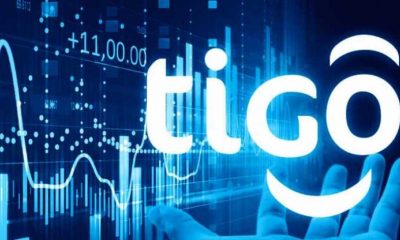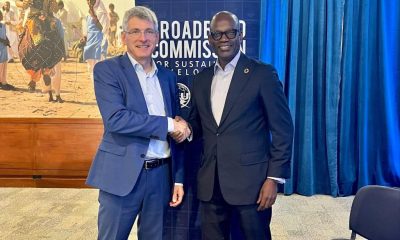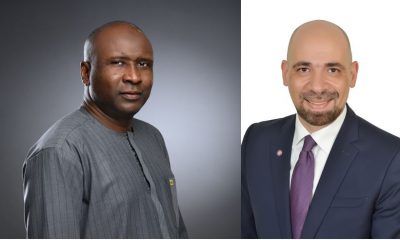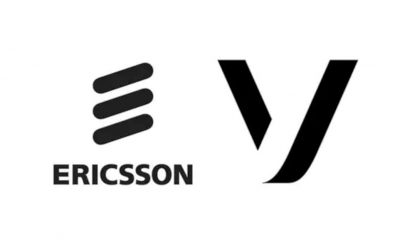Education
UNICEF, Ericsson to Map Internet in Nigerian Schools
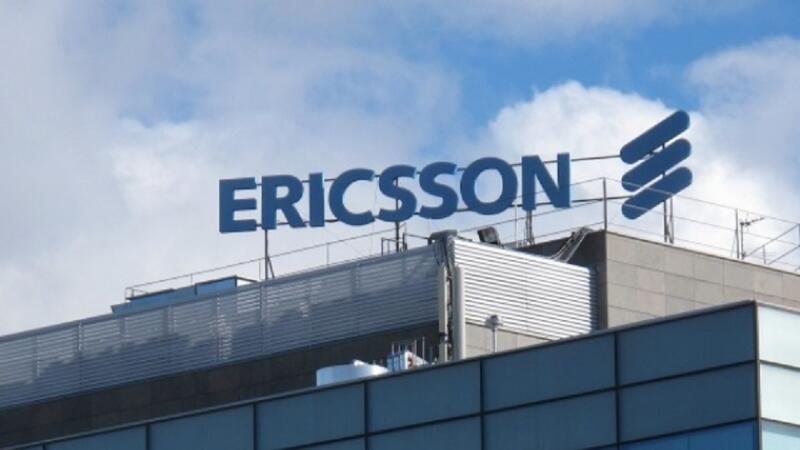
By Adedapo Adesanya
The United Nations Children’s Fund (UNICEF) and Swedish multinational networking and communications company, Ericsson, have collaborated to provide internet connectivity mapping to educational institutions in Nigeria.
In a statement, the Country Manager of Ericsson Nigeria, Mr Sean Cryan, said that the goal of the project with the theme Mapping school internet connectivity would help to bridge the digital divide by providing internet access for the next generation.
“We are planning to share the list of the first 10 countries in the fourth quarter of this year, while the remaining countries will be communicated in 2021,” he said.
He added that the project would start before the end of 2023, adding that the initial take-off would also depend on where their teams would be allowed to travel and operate safely.
According to him, digital transformation, undoubtedly, impacts various sectors and organisations by helping them leverage beneficial opportunities that come with new technologies.
“Mapping the internet connectivity landscape in schools and their surrounding communities will be of great importance, given its vital role.
“Connectivity mapping is a primary source for providing children with the necessary means and capabilities to exploit the opportunities provided by the advantages of digital learning,” he said.
He said that the partnership falls within the framework of the “Giga” initiative that was launched in 2019 by the International Telecommunication Union (ITU) in cooperation with UNICEF.
Mr Cryan added that it had the primary goal of connecting all schools on the planet to the internet.
The country manager also highlighted the benefits of mapping to governments and the private sector.
He said that it would help them design and deploy digital interventions to support uninterrupted learning for children and young people adding that the notion that some internet users employed the use of the facility from their homes while many others use it at school.
“The International Telecommunication Union (ITU) estimates that over 53 per cent of the world’s population used the internet in 2019, up from under 17 per cent in 2005.
“Although we have broad statistics on internet usage, the mapping will help us to understand how access by schools fits into that and where the gaps are.
“Ericsson’s vision calls for us to connect the unconnected because we believe that access to communication is a basic human need.
“We also believe that people in the rural parts of Africa will benefit greatly from mobile connectivity, which greatly increases access to information and services that support health, education and small businesses.’’
According to the Country Manager, digital connectivity is one of the ‘Global Breakthroughs’ which the Giga project is looking to address.
“The partnership between UNICEF and Ericsson will take the first vital step in mapping and understanding the connecting gap,” he said.
Mr Cryan also speaking on the scope of the project, said that Ericsson had committed resources for data engineering and data science capacity to accelerate the mapping.
He said that the company would specifically assist with the collection, validation, analysis, monitoring and visual representation of real-time school connectivity data.
“Ericsson is the first private sector partner to join this initiative and does so as a Global UNICEF Partner for School Connectivity Mapping.
“Collected data will enable governments and the private sector to design and deploy digital solutions that enable learning for children and young people.
“Additionally, Ericsson will engage its extensive customer base in the Giga initiative to further advance this mission,” he said.
The Country Manager further added that the total value of the partnership between Ericsson and UNICEF would be determined over time, adding that they were yet to arrive at the amount of time and resources needed to support the project.
He also said that both organisations were still working together to assess the locations where the programme would likely have the greatest impact.
He said that this would afford them the opportunity of taking the advantage of the information, choice and opportunities that it would bring.
He also added that Ericsson had been working on how to provide communication services and solutions to challenges facing ICT users since its inception.
He said that this had been across network segments so as to make the operations of telecom service providers more efficient and bolster their digital transformation.
According to the Ericsson Mobility Report, mobile broadband subscription penetration in the Sub-Saharan Africa region is approximately 30 per cent and is forecasted to reach around 50 per cent by the end of 2025.
Also citing a Mobile Economy 2018 report by Global System for Mobile Communications (GSMA), it was noted that the 49 per cent mobile subscription of Nigeria’s 196 million people is expected to reach 55 per cent by 2025.
Mr Cryan also spoke on the strategic importance of Nigeria to the projects. He said that with Nigeria currently holding one of the highest numbers of mobile subscriptions in Sub-Saharan Africa, superior network performance is imperative.
According to him, Ericsson is committed to partnering local service providers in meeting the growing demands of subscribers for an enriched broadband experience.
He also said that the importance of establishing a high-quality mobile broadband service in Nigeria cannot be overestimated.
“It opens up opportunities for people to improve their productivity locally and fuels new businesses which feed into boosting the economic growth of the country.
“In collaboration with Ericsson, local service providers have rolled out an LTE network that has had a significant impact on the user experience in Nigeria.
“Download and upload speeds in the completed areas are exceptional and customer feedback has been overwhelmingly positive.
“Nigerians can now experience a truly world-class data service with faster web browsing and downloads,” he said.
Furthermore, the Country Manager said that for the company to deliver sustainable impact, it had begun to collaborate with various partners to facilitate societal impact and provide equal opportunities.
Education
Entries for InterswitchSPAK 8.0 Begin, Over N40m up for Grabs

By Aduragbemi Omiyale
Senior secondary school students across Nigeria have been invited to apply and demonstrate their academic excellence on a national stage in the eighth edition of the prestigious national science competition known as InterswitchSPAK.
The contest is organised by Interswitch, Africa’s leading technology company focused on creating solutions that enable individuals and communities prosper.
Registration for InterswitchSPAK 8.0 via www.interswitchspak.com has opened and will close on Friday, May 24, 2026. For the first time, in addition to group registrations through schools, parents can also register their individual children for the competition.
This year’s edition features a scholarship pool exceeding N40 million, with Interswitch expanding the prize structure to ensure broader impact.
The overall winner will receive a N15 million tertiary scholarship, including monthly stipends. The first runner-up will be awarded a N10 million scholarship, including monthly stipends; while the second runner-up will receive a N5 million scholarship, also including monthly stipends. All scholarships are payable over 5 years. Also, the top 9 finalists will all receive brand new laptops and other exciting prizes.
In addition to the top prizes, Season 8 introduces enhanced rewards for student finalists ranked 4th to 9th, as well as increased recognition for teachers supporting qualifying students from 1st to 9th place. This expanded structure reinforces Interswitch’s commitment to rewarding academic excellence and recognising the critical role educators play in shaping student success.
“At Interswitch, we strongly believe that Nigeria’s future will be shaped by how well we nurture today’s young minds. InterswitchSPAK goes beyond competition; it is a long-term commitment to empowering students and supporting teachers who are laying the foundation for innovation, problem-solving, and national development.
“As we launch Season 8, we remain focused on creating opportunity, rewarding merit, and inspiring excellence across Nigeria,” the Executive Vice President for Group Marketing and Communications at Interswitch, Ms Cherry Eromosele, said.
Designed to empower young minds in the Science, Technology, Engineering, and Mathematics (STEM) areas, InterswitchSPAK identifies, nurtures, and rewards students while equipping them with the skills and knowledge required to excel in STEM fields and drive innovation.
Over the past seven seasons, InterswitchSPAK has positively impacted thousands of students across the country, offering full university scholarships, mentorship opportunities, and national recognition for outstanding academic performance.
Beyond these rewards, the programme has consistently reinforced the importance of STEM education as a critical driver of innovation, problem-solving, and sustainable national development.
Through a transparent, technology-enabled selection process, InterswitchSPAK has also promoted educational equity by providing students from diverse socio-economic backgrounds with equal access to opportunity, ensuring that performance and merit remain central to success.
Education
Appeal Court Orders CBN, ABU Zaria to Pay N2.5bn to 110 Illegally Sacked Workers
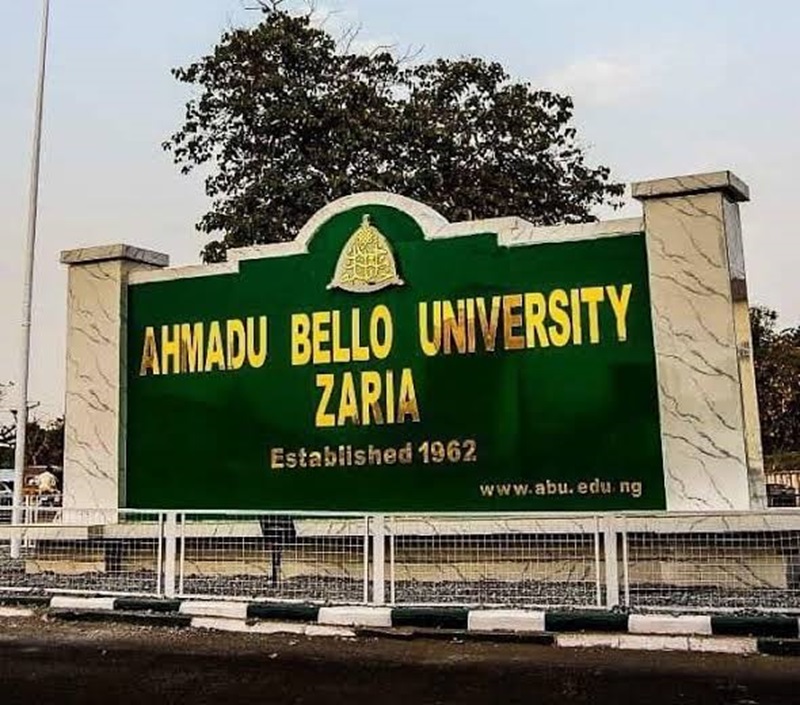
By Adedapo Adesanya
The Court of Appeal in Abuja has dismissed the fresh bids by the Central Bank of Nigeria (CBN) and the Ahmadu Bello University (ABU) Zaria to stop the implementation of N2.5 billion judgment debt against the school and in favour of the 110 workers of the University unlawfully sacked in 1996.
In two separate unanimous judgements by a three-member panel of justices, the appellate court ordered the CBN to immediately release N2.5 billion to the former workers of the higher institution of learning without further delay.
In the lead judgments delivered by Justice Okon Abang, the appellate court threatened to impose heavy sanctions on the prime movers of CBN should the apex bank further refuse to release the money kept in its custody since 2018 by ABU, for onward payment to the aggrieved workers.
Justice Abang dismissed the CBN’s claim that the 110 workers unlawfully sacked by ABU in 1996 but ordered reinstated by the National Industrial Court in Abuja, cannot use garnishee proceedings against it to collect the money.
The claims of the apex bank that consent of the Attorney General of the Federation and Minister of Justice (AGF) must first be obtained by the workers before payments can be effected were also dismissed by the Court of Appeal.
The CBN and ABU had, in separate appeals, challenged the implementation of the judgment of the Industrial Court, which ordered ABU to pay the entitlement of the 110 workers, having found that they were unlawfully laid off by the Sole Administrator of the University, General Mamman Kontagora, in 1996.
The two appellants also faulted the use of garnishee proceedings against them by the workers to effect payments.
The two appeals were dismissed for being unmeritorious.
Justice Rakiya Haastrup of the Industrial Court had on January 27, 2022, issued a “garnishee order absolute,” directing the CBN to pay the judgment sum to the workers from ABU’s funds.
Justice Abang held that the workers were right in filing garnishee proceedings against CBN to enforce payments of their entitlement as required by law.
The Court of Appeal admonished the apex bank for wasting public funds to engage lawyers to file a suit to frustrate the payments of the entitlement to the aggrieved workers.
According to the appellate court, the conduct of the CBN in opposing payments of the money was reckless and reprehensible to the workers since the ABU had deposited the money with it for the settlement of the judgment debt.
“In this matter, it is not the duty of the CBN to play the role of the advocate but to implement the court judgment that awarded the money to the workers in the absence of any contrary court order.
“It is also unethical for the lawyer to the CBN to have supported the bank in frustrating the judgment of the Industrial Court. The unfortunate action of the CBN had prolonged the sufferings and hardships of the workers.
“The lawyer ought to have advised the CBN not to play the role of the advocate, no matter how juicy the CBN brief. The action of CBN is cowardice. It took the matter personal against the workers who have been suffering since 2013.
“There is no lawful reason for the CBN to have filed this appeal against the judgment of the Industrial Court since the workers made no claims against the bank.
“The lawyer owes a duty to the court, to the country, and to the 110 workers to see that they are not unjustly punished or denied the fruits of their court victory. He ought to have withdrawn his services if CBN went against his advice. They ended up wasting the valuable judicial time of this Court.
“How can CBN be asking that the order of the court not made against it be vacated when it has been holding the workers’ money since 2018? The situation must not continue. There must be an end to it. The workers deserve the fruit of their labour,” he said.
The Court of Appeal awarded N5 million against CBN and another N5 million against ABU to be paid to the workers as costs of litigation in addition to the N2.5 billion.
Education
British High Commission Lauds 99 Chevening, Commonwealth Scholarship Beneficiaries
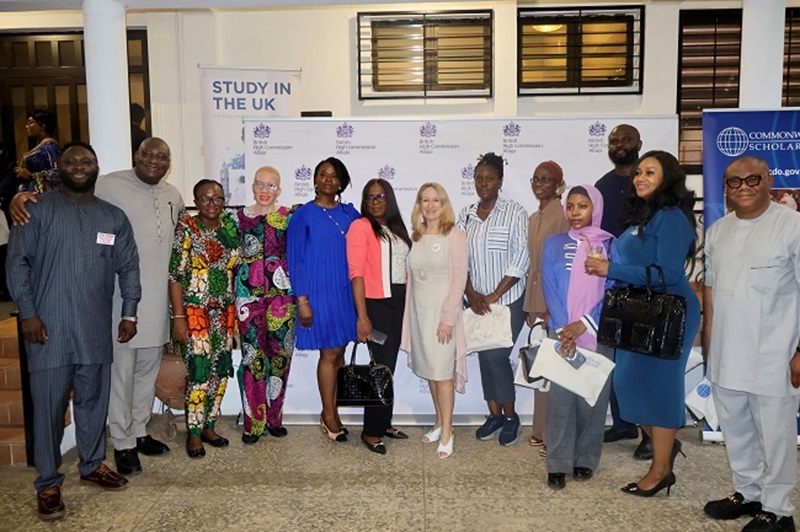
By Adedapo Adesanya
The British High Commission has celebrated 99 Nigerians who have recently completed their studies in the United Kingdom through the prestigious Chevening and Commonwealth scholarships, pursuing a wide range of master’s degree, PhD, and fellowship programmes.
In Abuja and Lagos, the commission held Welcome Home ceremonies for the 30 Chevening scholars who have completed their studies, as well as the 69 beneficiaries who make up the Commonwealth scholars and fellows.
Chevening Scholarships are the UK Government’s global scholarship programme, funded by the Foreign, Commonwealth and Development Office (FCDO), partner organisations, and partner universities, while Commonwealth Scholarships are managed by the Commonwealth Scholarship Commission (CSC) in the UK.
At both events, the scholars and fellows shared their academic journeys and experiences, and their preparedness to use the skills and knowledge developed during their studies to contribute to Nigeria’s development. Additionally, they were celebrated for their exceptional academic achievements, received their completion certificates, and were officially inducted into the Chevening and Commonwealth alumni community in Nigeria.
Speaking at the reception, the British Deputy High Commissioner, Mrs Gill Lever (OBE), said, “We take great pride in welcoming back our Commonwealth and Chevening Scholars. Congratulations to every one of them for completing their studies, many with distinctions. I’m so happy that talented Nigerians have had the opportunity to study in the UK, returning with additional knowledge and skills to make a positive difference in their home country. I encourage them to aim for excellence in their future endeavours. I know they will be great ambassadors for the UK in Nigeria and make the most of the networking and knowledge sharing that being a Commonwealth or Chevening scholar presents. Keep in touch, everyone!”
British Council was represented at the welcome event by Mr Chikodi Onyemerela, Director of Programmes, British Council Nigeria. During his remarks, Chikodi congratulated the scholars for completing their master’s and PhD programmes in the UK.
He urged the scholars to be good Ambassadors of their institutions in Nigeria and urged them to apply the knowledge, skills and network that they have acquired in the UK to address challenges facing Nigeria in various sectors while maintaining ties with their UK institutions.
A Chevening Scholar, Nankur Pontip Ramdur, who studied Terrorism, International Crime and Global Security at Coventry University, UK, said, “I understand that peace and security are at the heart of every nation’s development and success; hence, I look forward to contributing to a safer Nigeria. I plan to continue outreach to schools and communities with my team, teaching responses and safe practices regarding sexual and gender-based violence. I am also currently writing a book to broaden the impact of this initiative in Nigeria and subsequently across the globe. I have so much more to meaningfully contribute to my country, and I am glad Chevening has propelled me towards achieving my dreams!”
A Commonwealth Scholar, Chimdi Ekwueme, who studied Health Policy, Planning and Finance at the London School of Hygiene and Tropical Medicine, UK, said, “Studying in the UK has deepened my Nigerian perspective by allowing me to situate my local experience within wider international conversations and gaining practical insights I can apply at home.”
-

 Feature/OPED6 years ago
Feature/OPED6 years agoDavos was Different this year
-
Travel/Tourism10 years ago
Lagos Seals Western Lodge Hotel In Ikorodu
-

 Showbiz3 years ago
Showbiz3 years agoEstranged Lover Releases Videos of Empress Njamah Bathing
-

 Banking8 years ago
Banking8 years agoSort Codes of GTBank Branches in Nigeria
-

 Economy3 years ago
Economy3 years agoSubsidy Removal: CNG at N130 Per Litre Cheaper Than Petrol—IPMAN
-

 Banking3 years ago
Banking3 years agoSort Codes of UBA Branches in Nigeria
-

 Banking3 years ago
Banking3 years agoFirst Bank Announces Planned Downtime
-

 Sports3 years ago
Sports3 years agoHighest Paid Nigerian Footballer – How Much Do Nigerian Footballers Earn




